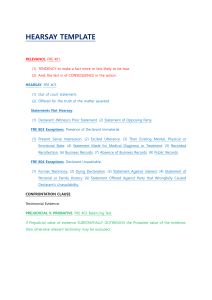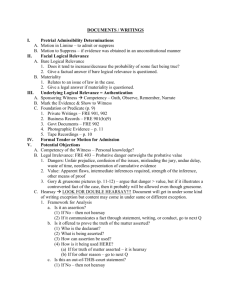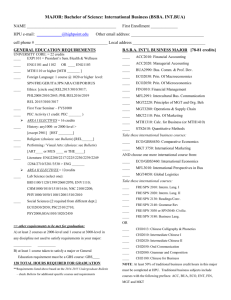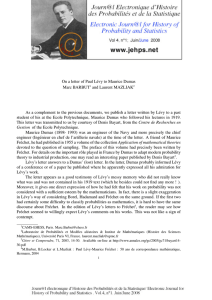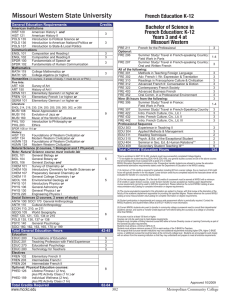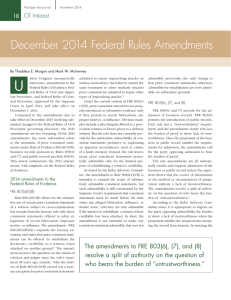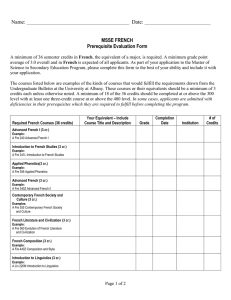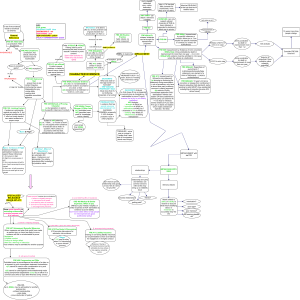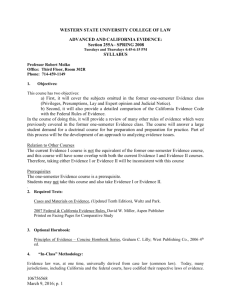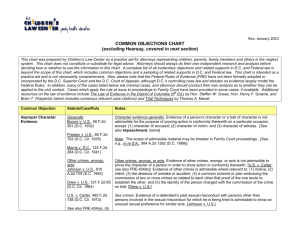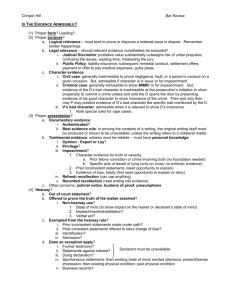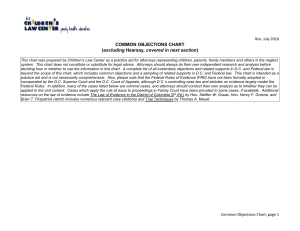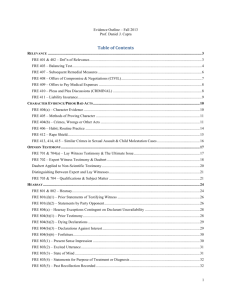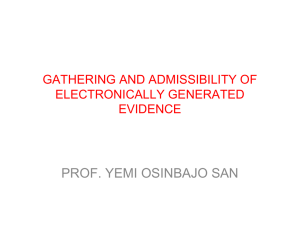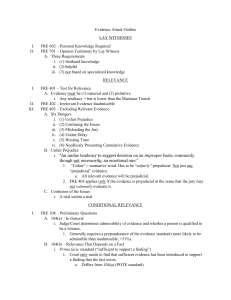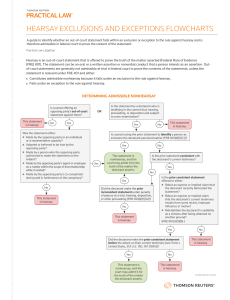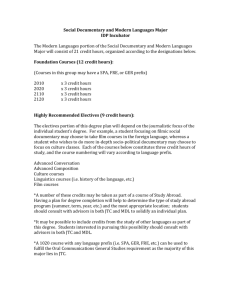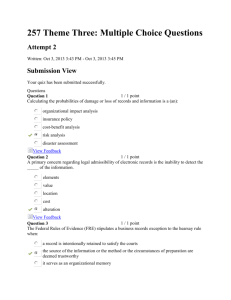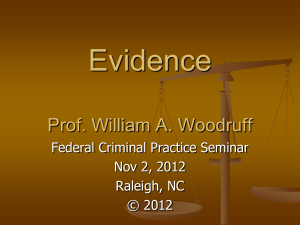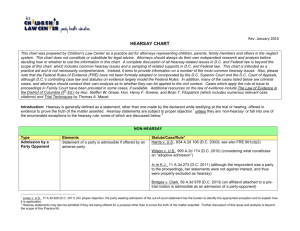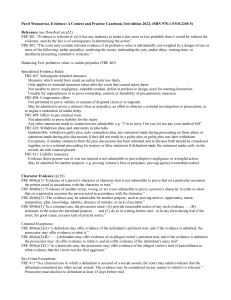Federal Rules of Evidence
advertisement
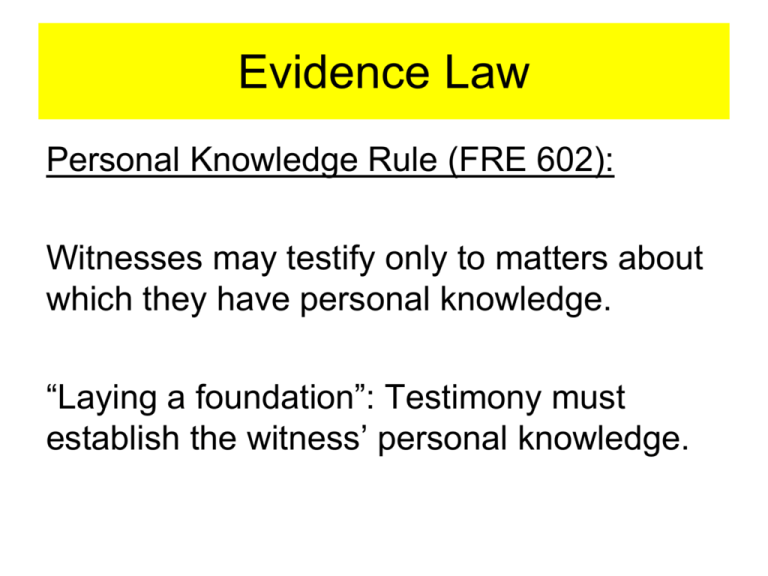
Evidence Law Personal Knowledge Rule (FRE 602): Witnesses may testify only to matters about which they have personal knowledge. “Laying a foundation”: Testimony must establish the witness’ personal knowledge. Opinion Rule (FRE 701): 1. Lay witnesses may testify to opinions which are rationally based on their personal observations and will be helpful to the jury. 2. Examples of Prohibited Opinions: – Legal conclusions – Opinions on witness credibility – Opinions on what another person thinks, feels, or believes 3. Examples of permissible opinions: – Physical appearance: identity, intoxication, state of health, age. – Mental condition of a family member or close friend. – Value of property or services. – Speed & distances. 4. Expert opinions are admissible whenever their specialized knowledge will assist the jury in understanding the evidence or deciding one of the issues. Relevancy Rule (FRE 401-402): Evidence is relevant if it helps prove a contested issue. Relevant evidence is admissible unless another rule (e.g., prejudicial effect) excludes it. Prejudicial Effect Rule (FRE 403) Relevant evidence may be excluded if its probative value is outweighed by its prejudicial effect, including danger of: – Unfair prejudice—arousing jurors’ emotions, biases, or prejudices. – Confusion of the issues—confusing or misleading jury about facts. – Waste of time. Character Evidence (FRE 404-405) 1. Evidence that tends to show a person’s good or bad qualities (e.g., criminal record) is not admissible. 2. Exceptions: a. Impeachment (character for untruthfulness) b. Criminal def may place character in issue, and then state may respond. c. Prior bad acts are admissible to show identity (“signature crimes”), motive, intent. Hearsay Rule (FRE 801-802) Definition: Hearsay is (a) Statement (written or oral) (b) Made outside of trial (c) That asserts facts; & (d) Now offered at trial to prove the truth of the facts asserted. Rule: Hearsay isn’t admissible unless an exception applies. Hearsay Exceptions 1. Party admissions (FRE 801(d)): Statements made by the opposing party. 2. Excited Utterances (FRE 803(2)): Statement relating to a startling event made by any person under the excitement of the event. 3. State of Mind (FRE 803(3)): Statements expressing a then-existing state of mind of the speaker—e.g., emotions, intentions, motives. 4. Business records (FRE 803(6)-(7)): Records made in the course of business routine, at or near the time of the event, based on personal knowledge of an employee, and then maintained by the business as a permanent record.
